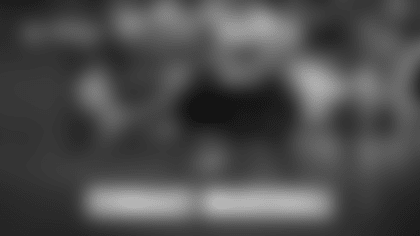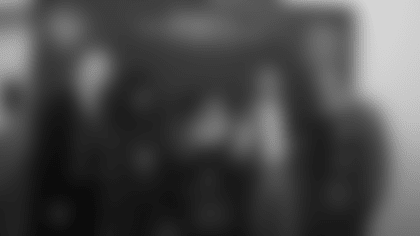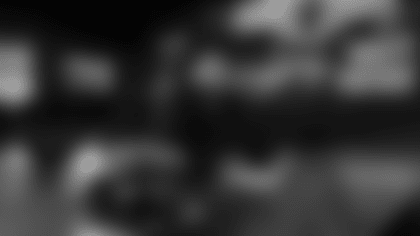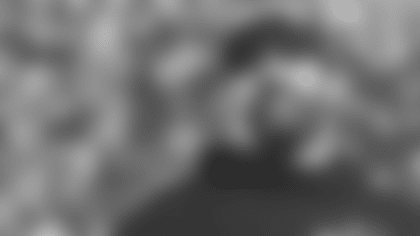Chairman and CEO Jeffrey Lurie spent his Sunday in spectacular fashion as the Commencement Speaker for Clark University's 115th Commencement Ceremony. Lurie, a 1973 graduate of Clark who received his bachelor's degree in psychology there and later earned his master's degree at Boston University and his Ph.D. in social policy from Brandeis, was a natural choice for the honor, which includes an honorary Doctor of Humane Letters, on Sunday, said Clark University President David P. Angel.
"As the leader of the Philadelphia Eagles, Mr. Lurie stewards an organization that is a national icon," Angel said. "From his earliest days with the team, Jeffrey recognized the potential in the Philadelphia Eagles to inspire a community, to demonstrate that the impossible can be accomplished, and to constantly call on all team members to be the very best versions of themselves.
"Clark University recognizes in his leadership a commitment to hope, to making a difference in the lives of others, and to achieving excellence in all that we do – that reflect the core values of our mission as a university. For this reason, we honor alumnus Jeffrey Lurie with Clark University's highest statement of recognition, the honorary degree."
Angel announced the selection of Jeffrey Lurie as the Commencement Speaker in a letter to students, faculty, and staff in a March newsletter.
"I am pleased to announce that our Commencement speaker this year is Jeffrey Lurie '73, successful businessman, filmmaker, and owner of the NFL's Philadelphia Eagles, the 2018 Super Bowl Champions," Mr. Angel wrote. "Lurie is also a compassionate and dedicated philanthropist. Immediately after purchasing the Eagles, he pledged to improve the health outcomes for at-risk youth across the Philadelphia region.
"The Eagles Charitable Foundation, originally founded in 1995, has enhanced the lives of more than one million children through its health and education programs. In 2017, Lurie launched the **Eagles Autism Challenge**, which has raised more than $2.5 million (now close to $6 million following Saturday's second Eagles Autism Challenge) toward autism research. Under his ownership, the Eagles have been widely recognized across the NFL for their advocacy of social justice and human rights initiatives. Lurie earned the 2018 Paul "Tank" Younger Award, given annually to an NFL executive, coach, or owner who promotes racial and gender diversity. He also is an accomplished film producer whose documentaries, Inside Job and Inocente, earned Academy Awards. He will receive an honorary Doctor of Humane Letters."
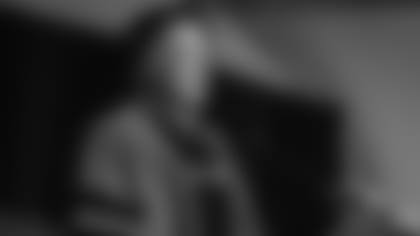
Here is a transcript of the speech from Lurie on Sunday to the Clark University Graduating Class of 2019.
"Thank you President Angel and your great leadership team, members of the faculty, board of trustees, alumni, friends, fellow honorees, and, most importantly today, members of the Clark Class of 2019 and your families: Thank you for not only the honor you are giving me, but the joy of being welcomed back to share in this special moment in your lives at a place that has meant so much to me, as I hope it has and will to all of you for many years to come.
"As a parent who's watched my own children graduate from college, I can assure you that no one is enjoying, or feeling greater pride at this moment more than your families sitting there behind you. Because you're not the only ones who've lost sleep getting to this day. They, and we, are here to applaud your accomplishment. But let me suggest we take a moment for you and all of us to applaud and thank them for everything they've done to make this day possible.
"Having sat where you are on this and other campuses, I also know the value of a graduation speaker who manages to keep it short, and maybe even say something you might remember a few decades from now – or at least until tonight's Game of Thrones finale.
"So I'm going to do my best to share just a few memorable thoughts about Clark, about the world that awaits you beyond it, and about some of the lessons I've learned that might be useful to you on whatever life's path you choose to follow.
"It's shocking for me to realize that I arrived on this campus nearly a half-century ago, in the late summer of 1969. No, I didn't stop at Woodstock along the way. But I did love music. Fact is, during my college years, I was a huge Grateful Dead fan – I went to A LOT of truly epic Dead concerts back then. Can you picture me in tie-dye jamming with the crowd to a long Jerry Garcia guitar solo? Lucky for us, there was no Instagram, so you'll have to use your imagination.
"I grew up a few miles down the Mass Pike in West Newton, a devoted fan of not only music, but movies and sports – and especially the Bruins of Bobby Orr and the Celtics of (John) Havlicek and (Bill) Russell. Before I came to Clark, I didn't feel especially engaged by the traditional academic mold. When I got here, I found there was no mold. I felt I'd landed in a place that truly welcomed students as individuals and encouraged us to pursue our own interests in our own way.
"I'll give you just one example. My roommate Steve Bahn and I decided to come up with something we called the Free University, where students designed and taught their own courses; which we opened not only to Clark students, but also our neighbors in Worcester.
"The school supported us. It nourished students' curiosity and independence, allowing us to pursue both our intellectual passions and our desire to make a difference in the world, starting with our own campus. And I know that many of you have pursued your entrepreneurial ideas in your time here as well.
"Looking around the world and our own country right now, it's hard to imagine a moment when the habits of mind and heart that you've been developing at Clark have been more needed or essential. We see the dysfunction of democratic systems and the rise of autocrats around the globe; the dangerous appeal of a nationalism and nativism that demonizes those who are different, devalues free speech and press, and uses fear and anger to divide instead of applying facts and reason to find common ground.
"It's been over your college years that we've come to the realization that the technologies we thought would provide a global forum for bringing us together have also driven us apart in our own political filter bubbles and echo chambers. You've grown up with access to knowledge and information unlike any in human history. Yet it's delivered by a social web that seems to be even better at promoting falsehood, conspiracy theories and hate speech. We've witnessed the unintended consequences around the world and in our own lives, from a loss of personal privacy and attention span, to compromised elections, incitement to violence, and even live-streamed terror attacks.
"It's an online public square that seems like the complete opposite of what you've learned at a school where the liberal arts and sciences – whatever your major – are meant to develop in each of us the capacity for open-mindedness, tolerance of opposing points of view, and critical thinking skills that are central to rational discussion in a free society.
"Many of us can appreciate what it feels like to come of age at a time of such political polarization. Fifty years ago when I came to Clark was also a moment of sharp division in our country, with bitter debates over the Vietnam War and the draft, racial injustice and social inequality – and a growing cultural divide that didn't need Twitter trolls to help drive many Americans apart.
"In the year I was applying to college, we saw two of our most inspirational leaders, Dr. Martin Luther King, Jr. and Sen. Robert Kennedy assassinated. It was a time of mass protests on campuses and in cities across the nation. And by the time I was sitting right where you are at my graduation in the Spring of 1973, the country was riveted by the Senate Watergate hearings into a President who put journalists at the top of his enemies list and defied Congressional subpoenas investigating obstruction of justice.
"Yet it was also a time when new movements for women's rights, gay rights, and the environment really began to take off. And when I see how today's young people are organizing to confront the real and present danger of gun violence, address climate change, and work for a more fair and just society, I am hopeful about our future. In my time here, Clark remained a place where political dissent and peaceful protest were understood as a vital part of learning and of citizenship. This is where I was inspired to eventually pursue a Ph.D. in social policy, even if my career ultimately followed a different script.
"You also may not know today where your path will lead or how it might change at some points in your life. But after your own years on this campus, you go out into a world that desperately needs you to apply every bit of scientific evidence and your own human experience to the mission of helping us to thrive as individuals and build healthy communities.
"I certainly don't have all the answers to those very big challenges, but what I've learned along the way is that technology may change, music styles may change (though the Dead, to be clear, is timeless), and our culture can and does change – much of it for the better since your parents and I were your age. But there are certain values that define who you are and your place in the world – not only as an engaged citizen and successful professional, but as a loving spouse and parent, a supportive brother or sister, a loyal friend – as a human being capable of experiencing the fullness of life.
"To me, those values start very personally – with unconditional love. Unconditional love is what I first learned from my mother, who is as sharp as ever at nearly 92 – and would have enjoyed being here today for my second Clark graduation, as she was for the first. Because of the example she set, I know that a key question in life is whether you give and feel from others the kind of unconditional love that makes it possible for us to be our best selves.
"That love isn't just about family, or romance (though I hope you all experience plenty of that). It's really about every aspect of our lives and how we engage with everyone around us.
"You want to have a lesson in impressive workplace leadership? I'll share just one football anecdote. Last year, when our great backup quarterback Nick Foles went into the huddle with two minutes left in the game to start a drive that we needed to win the Super Bowl, you know what he said? Not 'let's go do this;' but simply, 'I love you guys.'
"'I love you.' Maybe it sounds hokey, but what could be more freeing of the best you have inside you than knowing you're loved regardless of what happens?
"It was from my mother that I also learned the importance of resilience. All of us, no matter how we've been blessed in life, inevitably face challenges – in our work, in our families, in ourselves. I don't think I needed to be a psychology major to appreciate what so much recent research has told us about the critical value of grit in how we respond to difficult circumstances. I saw that in my mother, who was widowed at age 33 when my father died.
"At 9 years old, I felt that loss deeply, but what a model of emotional strength and resilience she provided, raising three kids on her own – including my younger brother whose profound autism was not nearly as well understood back then as it is today.
"I know how fortunate we were to have financial security. But as an adult, I've also been lucky enough to come to know great players on our team who lacked any of the advantages I had growing up – some not only poor, but even homeless, in a society where economic and racial inequality remains so entrenched. And I am so impressed with their character and resilience. They pursued both their education and an elite level of athletic success that was only possible with a deep well of grit and determination on and off the field. So I knew when we all held up that Lombardi Trophy after the Super Bowl, their accomplishment was about so much more than winning a football championship.
"In the big data, A.I. world you're graduating into, I can't emphasize enough how the qualities that make us uniquely human are more essential than ever. That means emotional intelligence, empathy, and appreciation for the people not only in your own family, but those you choose to be with in every facet of your life and work.
"We use data analytics as much as any professional sports team – and I'd be the first to tell you that crunching the numbers can tell us a lot about performance. But in the end, you have to make a judgment about human character that no algorithm can really capture. When we decided to hire Doug Pederson as our new coach, we got plenty of criticism for what seemed like a completely unconventional choice based on his career experience at that point. But what I saw in Doug was someone not just with expertise about football strategy and tactics, but a unique level of empathy for players as individuals – and real insight about how people work together as a team.
"That kind of leadership and the success it generates isn't about sports. It's about trust. To be sure, healthy competition can make us all perform better as individuals as we strive to improve. But when it comes to solving problems, study after study shows that the most effective organizations aren't built on individual genius, but on diverse groups who trust and respect one another.
"Let me go back to my social science roots for a second. I read an MIT research project that put hundreds of volunteers into groups that were each given very hard problems to solve. And what really jumped out for me was that the highest-achieving teams weren't those where they had one or two stars with off-the-charts I.Q. No, the most effective problem-solving groups were the ones that showed the highest degrees of empathy for one another – a capacity to listen to every voice at the table because of a feeling of mutual trust and respect. I should also note for all future employers, these were also the teams with the most women.
"So what's it take to be one of those trusting problem-solvers who can truly hear one another? I've found that to embrace what makes us fully alive to ourselves and those around us calls on you to keep the child in you as you grow, with an enduring sense of wonder and curiosity. Buddhism calls it "beginner's mind." Great scholars experience it as the capacity to approach every question as new and unsettled – and every answer as only raising new questions to explore. That's a mindset I learned at Clark that has continued to serve me well throughout my life. It's about a radical kind of open-mindedness that allows us to continue to grow both intellectually and emotionally throughout our lives. There's nothing childish about keeping that child-like perspective regardless of how old you are.
"And as we value a truly open mind, I believe it's just as important to have an open heart. Of course, life's inevitable responsibilities can make it difficult to always follow our hearts, our passions. Yet all of us have human needs that are not only cognitive, but emotional and physical. I don't think it's possible to be our best selves without being open to people, experiences, and even work that touches our hearts. We all need joy in our lives – and I hope you have both the open mind and open heart to find your own joy.
"If there's one insight I had from going to rock concerts and working in movies that ultimately led me to my other great childhood love of professional sports – it's that we human beings still want to sit together in actual spaces and share the collective experience of a great drama – where we can root for the hero and invest ourselves in their fate, whatever the last scene or final score. In a world where everything is available on demand delivered to your home screen, the fact is there's nothing quite like being there, together with other people as not just an audience, but a community. After all, it's why you came to live and learn together on a campus these past four years.
"For me, it was important to ensure that sense of community became a core value of our professional sports franchise, not just a PR pitch. No question, our goal is to win championships, but we have committed ourselves to supporting our players and staff in being truly engaged citizens working for health, education, and social justice in our city. Many have been rightly honored for that civic engagement. For me personally, my brother's life on the autism spectrum has driven a focus on using our platform to raise both awareness and funding for cutting-edge research for those with autism. Yes, that's rooted in my own family experience. But what's important is that it affects so many other families across the globe.
"One last piece of wisdom as I look back and you look forward. It's incredibly powerful to remind ourselves of the fragility of life and the feeling of gratitude for every bit of it we get to experience. That's easy to say in theory, but hard to do in practice. We all get so caught up in the sheer busyness of things. But I can't emphasize enough how important it is to slow down and allow ourselves to feel grateful, even for the most mundane daily experience; because it really is so fragile.
"Today what we pause to celebrate is the pride and gratitude that Clark has given us the space to be independent, critical thinkers and doers. It's a day to honor you and the work that you've done to develop those essential tools for living – and lifelong learning.
"If I can add anything even remotely useful on your graduation day, it's simply about the extraordinary power of unconditional love, of resilience, empathy, and gratitude – and of maintaining a childlike sense of wonder and curiosity about the world, with both an open mind and an open heart. Even in this digital, data-driven age – and perhaps especially in this age – those are the enduring values that make us truly alive and human. They're also fragile things, yet they empower us to make a difference, each in our own way, in our families and communities, our country and the world.
"Congratulations Clark Class of 2019."







